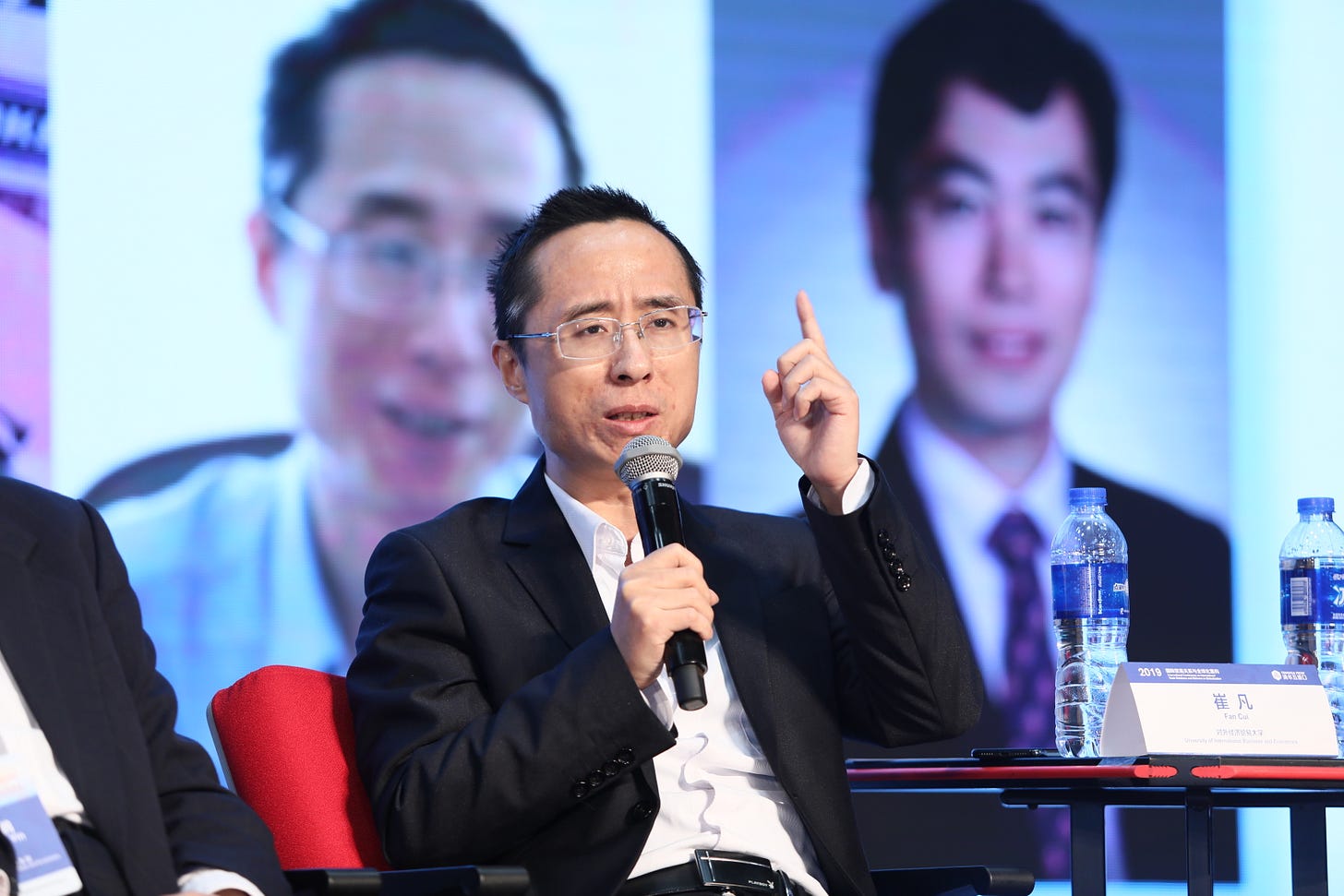China's leading trade expert: it will be difficult to initiate tariff negotiations if US continues its strategy of containing China,
Today I’m sharing an article by Professor Cui Fan of the University of International Business and Economics (UIBE) in China. The piece focuses on the ongoing U.S.-China tariff war and the broader strategic dynamics behind it. Professor Cui, an expert in international trade rules and multilateral mechanisms, offers a thoughtful analysis of China’s negotiation posture.
On May 2, a spokesperson for China’s Ministry of Commerce stated:
“China has taken note of multiple public statements by senior U.S. officials expressing a willingness to engage in negotiations over tariffs. Recently, the U.S. has also proactively conveyed its intent to talk with China through various channels. China is currently evaluating these developments.”
This statement by the MOFCOM is widely interpreted by the market as a potential signal that trade negotiations between China and the U.S. may begin. However, whether such talks will actually take place still depends on China’s assessment.
On April 24, a ministry spokesperson had stated:
“At present, there are no ongoing trade negotiations between China and the U.S. Any reports of negotiation progress are unfounded and lack factual basis. China’s position remains consistent—we are open to consultation and dialogue. However, any negotiations must be conducted on the basis of mutual respect and equality.”
“It is up to the party who tied the bell to untie it. Since the U.S. unilaterally initiated tariff hikes, if it truly wants to resolve the issue, it should heed rational voices from the international community and its own public, completely remove all unilateral tariffs on China, and seek solutions through equal dialogue.”
On April 25, I offered my interpretation of this statement on CGTN’s “Focus Today” program. My views are as follows:
The demand for the U.S. to fully remove all unilateral tariffs that violate WTO rules has been China’s consistent position since 2018. The spokesperson reiterated this firm stance.
The statement should not be over-interpreted as making the removal of all U.S. tariffs a precondition for talks. I mention this because such over-reading has appeared in public discourse.
Equal dialogue without coercion or threats is essential for successful negotiations. If the U.S. continues to pursue its so-called “grand encirclement” strategy, the atmosphere for negotiations will remain unfavorable. In that case, China may need to continue observing and wait patiently.
The so-called “grand encirclement” strategy is not a conspiracy theory—it is a real strategic approach being advanced by the U.S. In late February, Treasury Secretary Bessent pressured Canada and Mexico to form a “Fortress North America” to jointly raise tariffs on China. Shortly after launching the “Reciprocal Tariffs” plan on April 2, Bessent said the U.S. should first align with allies and then “approach China as a group.” Bloomberg referred to this as a “grand encirclement” strategy and revealed that in U.S.-Japan talks, Washington pushed Tokyo to join its trade containment efforts against China—requests that were reportedly resisted by the Japanese side.
Why does the U.S. keep releasing false signals suggesting it is in talks with China, while China repeatedly refutes these claims? It’s likely because Beijing understands that the U.S. aims primarily to calm domestic market panic—stocks, bonds, and currency—and to gain leverage in negotiations with other countries, rather than genuinely seeking talks with China. Given Bessent’s stated preference for first forming a united front with allies before dealing with China, what is the urgency or value for China in rushing into bilateral trade negotiations?
China has always kept the door open for dialogue. The May 2 statement from the Commerce Ministry reflects a negotiation stance that combines principle with flexibility. It reaffirms China's openness to resolving disputes through dialogue, while also signaling concern about Washington’s lack of sincerity. In my personal view, China should evaluate the viability of trade talks by first examining whether the U.S., in its talks with other countries and regions, is still pursuing its “grand encirclement” strategy and continuing to pressure them to limit trade with China.


